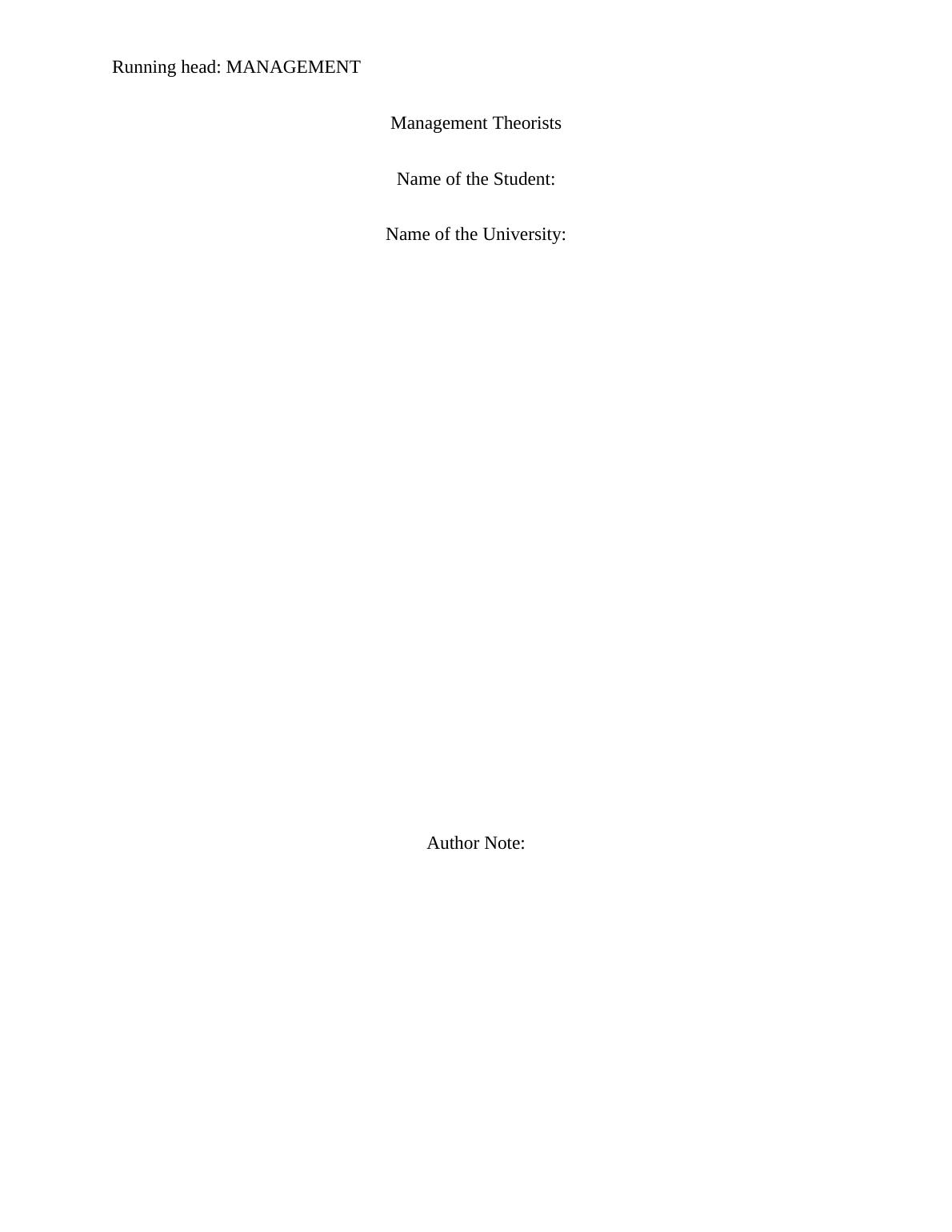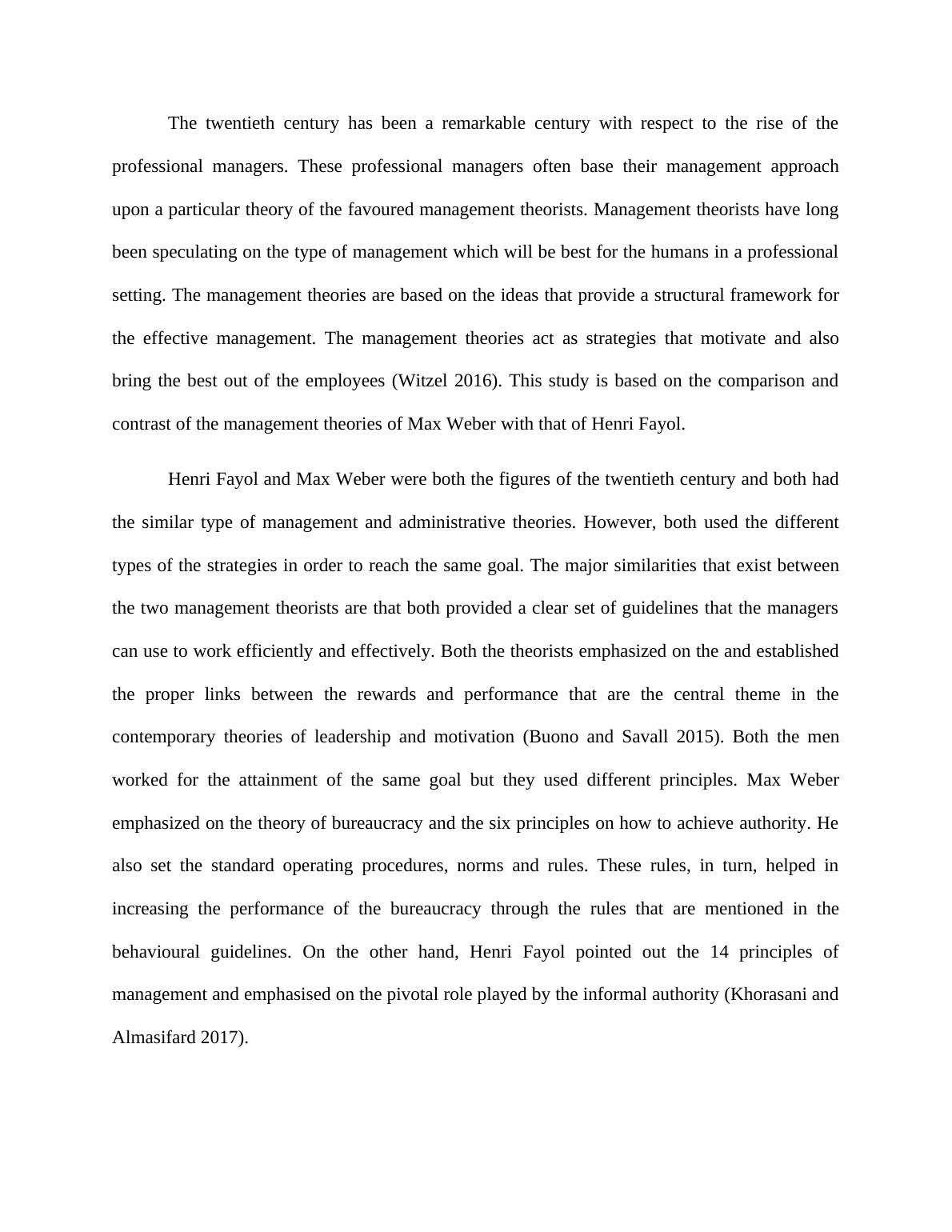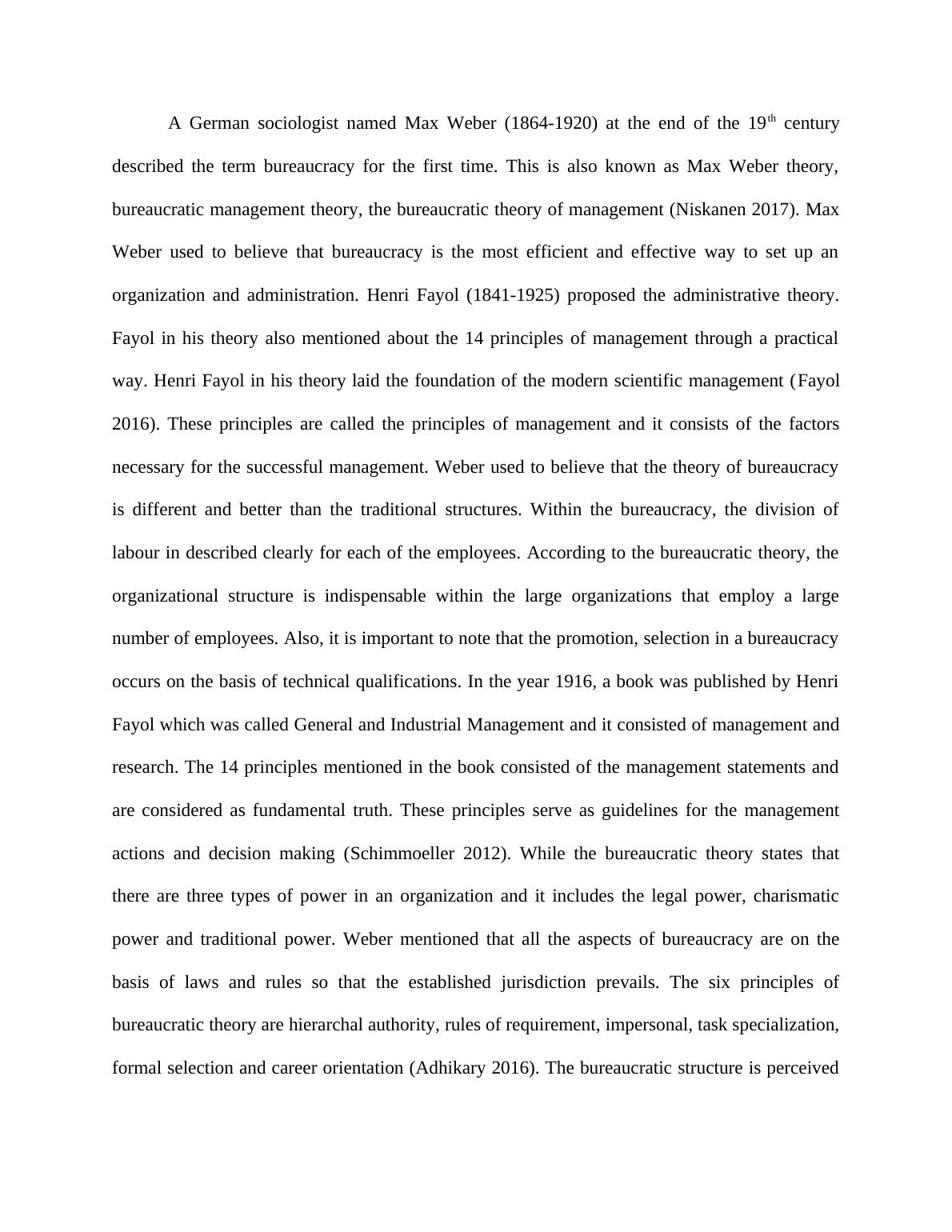Ask a question from expert
Management Theorists Assignment pdf
6 Pages1386 Words414 Views
Added on 2021-05-27
Management Theorists Assignment pdf
Added on 2021-05-27
BookmarkShareRelated Documents
Running head: MANAGEMENTManagement TheoristsName of the Student:Name of the University:Author Note:

The twentieth century has been a remarkable century with respect to the rise of theprofessional managers. These professional managers often base their management approachupon a particular theory of the favoured management theorists. Management theorists have longbeen speculating on the type of management which will be best for the humans in a professionalsetting. The management theories are based on the ideas that provide a structural framework forthe effective management. The management theories act as strategies that motivate and alsobring the best out of the employees (Witzel 2016). This study is based on the comparison andcontrast of the management theories of Max Weber with that of Henri Fayol. Henri Fayol and Max Weber were both the figures of the twentieth century and both hadthe similar type of management and administrative theories. However, both used the differenttypes of the strategies in order to reach the same goal. The major similarities that exist betweenthe two management theorists are that both provided a clear set of guidelines that the managerscan use to work efficiently and effectively. Both the theorists emphasized on the and establishedthe proper links between the rewards and performance that are the central theme in thecontemporary theories of leadership and motivation (Buono and Savall 2015). Both the menworked for the attainment of the same goal but they used different principles. Max Weberemphasized on the theory of bureaucracy and the six principles on how to achieve authority. Healso set the standard operating procedures, norms and rules. These rules, in turn, helped inincreasing the performance of the bureaucracy through the rules that are mentioned in thebehavioural guidelines. On the other hand, Henri Fayol pointed out the 14 principles ofmanagement and emphasised on the pivotal role played by the informal authority (Khorasani andAlmasifard 2017).

A German sociologist named Max Weber (1864-1920) at the end of the 19th centurydescribed the term bureaucracy for the first time. This is also known as Max Weber theory,bureaucratic management theory, the bureaucratic theory of management (Niskanen 2017). MaxWeber used to believe that bureaucracy is the most efficient and effective way to set up anorganization and administration. Henri Fayol (1841-1925) proposed the administrative theory.Fayol in his theory also mentioned about the 14 principles of management through a practicalway. Henri Fayol in his theory laid the foundation of the modern scientific management (Fayol2016). These principles are called the principles of management and it consists of the factorsnecessary for the successful management. Weber used to believe that the theory of bureaucracyis different and better than the traditional structures. Within the bureaucracy, the division oflabour in described clearly for each of the employees. According to the bureaucratic theory, theorganizational structure is indispensable within the large organizations that employ a largenumber of employees. Also, it is important to note that the promotion, selection in a bureaucracyoccurs on the basis of technical qualifications. In the year 1916, a book was published by HenriFayol which was called General and Industrial Management and it consisted of management andresearch. The 14 principles mentioned in the book consisted of the management statements andare considered as fundamental truth. These principles serve as guidelines for the managementactions and decision making (Schimmoeller 2012). While the bureaucratic theory states thatthere are three types of power in an organization and it includes the legal power, charismaticpower and traditional power. Weber mentioned that all the aspects of bureaucracy are on thebasis of laws and rules so that the established jurisdiction prevails. The six principles ofbureaucratic theory are hierarchal authority, rules of requirement, impersonal, task specialization,formal selection and career orientation (Adhikary 2016). The bureaucratic structure is perceived

End of preview
Want to access all the pages? Upload your documents or become a member.
Related Documents
Bureaucratic and Administrative theory Assignmentlg...
|7
|1619
|27
Organisation Theory: Classical and Neoclassical Approaches, Contemporary Marketing, Japanese Approach, Organizational Learning and Culture Excellencelg...
|8
|2696
|254
Organisational Theorylg...
|9
|2440
|56
Foundation Management Assignmentlg...
|7
|2119
|39
BMG209: Introduction to Management and Leadershiplg...
|11
|3118
|44
Organizational Culture and Management Approachlg...
|7
|2218
|170